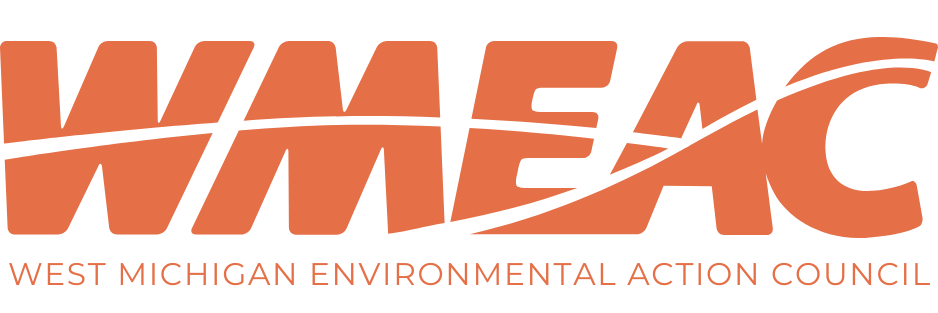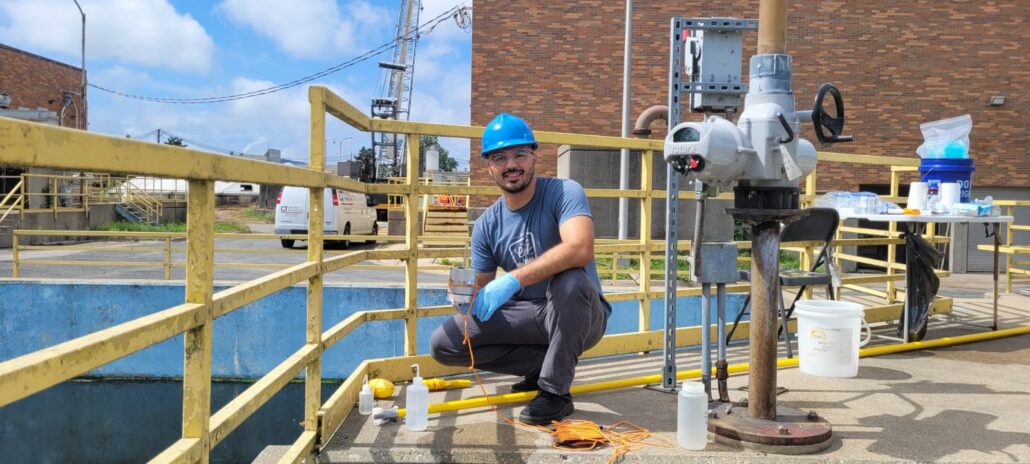By Grace Hasley, WMEAC’s Eco-Journalism Intern
PFAS contamination in our waterways has negatively impacted Michigan residents for many years, and sometimes it can feel challenging to keep a hopeful attitude about the future of public health. It might provide some comfort to hear about what the past AJ Birkbeck Scholarship recipients are up to. Check out what the 2023 recipient, Ethan Coffin, has been working on since he earned his scholarship last year.
Ethan Coffin is a PhD student closing in on his final year at Western Michigan University in Kalamazoo, Michigan. During his third year, Coffin was already doing PFAS work when his advisor urged him to apply for the AJ Birkbeck Scholarship. Coffin had been working on a device, which is currently in the process of obtaining a patent, that removes foam from waste water in order to test it for different PFAS compounds. “The main goal of my research is to remove PFAS from waste water treatment plants, which is one of the biggest sources into the natural environment,” he explained.
He applied for this scholarship to supplement most of the funds needed to conduct analysis on the foam samples. “We ended up taking 50 samples, so all the money went to that pretty much,” Coffin said. Coffin and his research partners put the data from the sample analyses and research into a manuscript that is currently under review and on the road to become published. The goal of the initial research was to see how much more concentrated the PFAS compounds are in the foam versus the wastewater and understand what controls this enrichment. Coffin and his team found that the PFAS compounds are more concentrated in the foam than in the water, but the enrichment factors were changing for different PFAS compounds based on the liquid content of the foam. From these findings, Coffin proposed the separation of compounds during foam drainage as a key mechanism driving enhanced concentration of long chain PFAS which are better retained in drier foams. He explained the importance of this discovery, saying: “The more concentrated [PFAS] are in the foam compared to the waste water, the better the removal.”
Based on what Coffin and his team have learned from their first round research, their next step is to establish an effective foam collection process to efficiently remove PFAS from wastewater treatment plants and replicate this process throughout the remainder of their testing and into the future. Coffin expressed how the foam collection has been one of the successes from his work so far that he is the most proud of. His advisor even suggested that he apply for a patent for his device and the foam collection process, which is currently in the works.
While the foam collector device is still in the prototype phase, Coffin plans to use these patents to protect intellectual property and to design systems that he can implement at a large scale. He has long term goals to start a business through Western Michigan University to continue his PFAS testing. These entrepreneurial passions aren’t new for Coffin, they started at a young age. “I’ve always wanted to be an inventor when I was a kid,” he said.
When asked what he wanted readers to know, Coffin talked about how impactful environmental research becomes increasingly accessible when there is outside funding. If it weren’t for the AJ Birkbeck Scholarship, Coffin wouldn’t have had the resources to do any waste water testing. To continue to fund inventive minds like Ethan’s, donate to sources like the AJ Birkbeck Scholarship and other environmental councils whenever you can.


